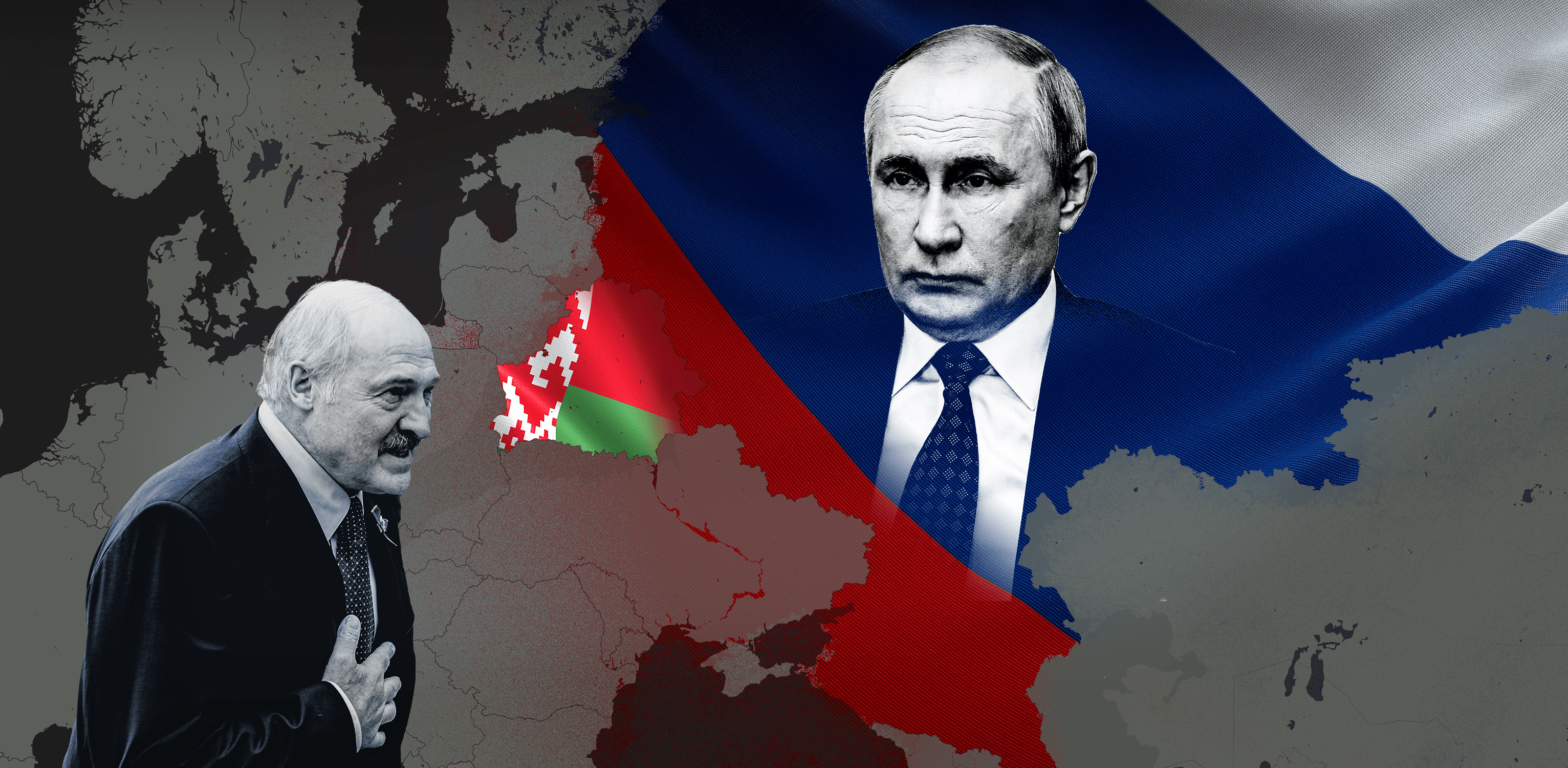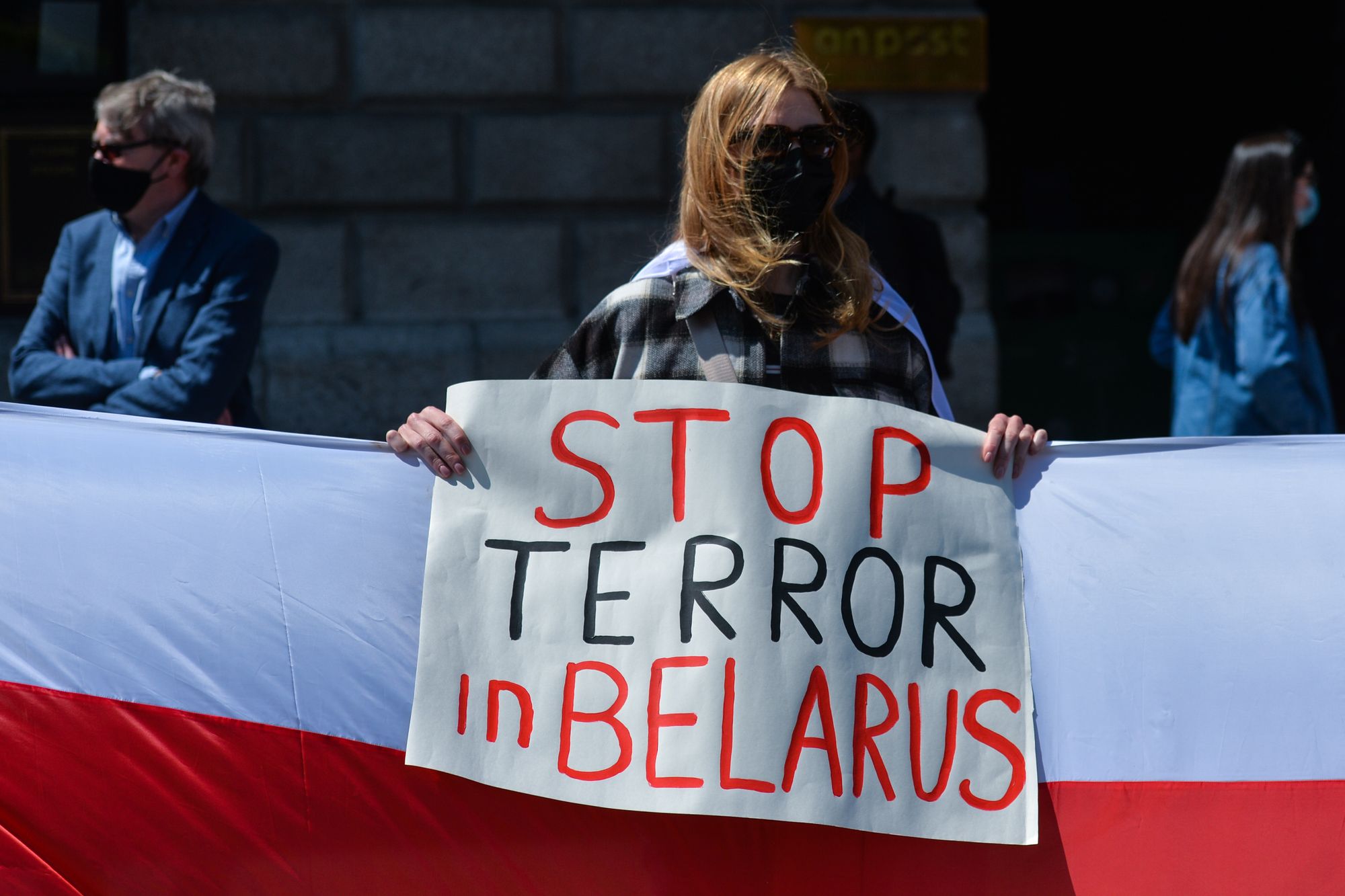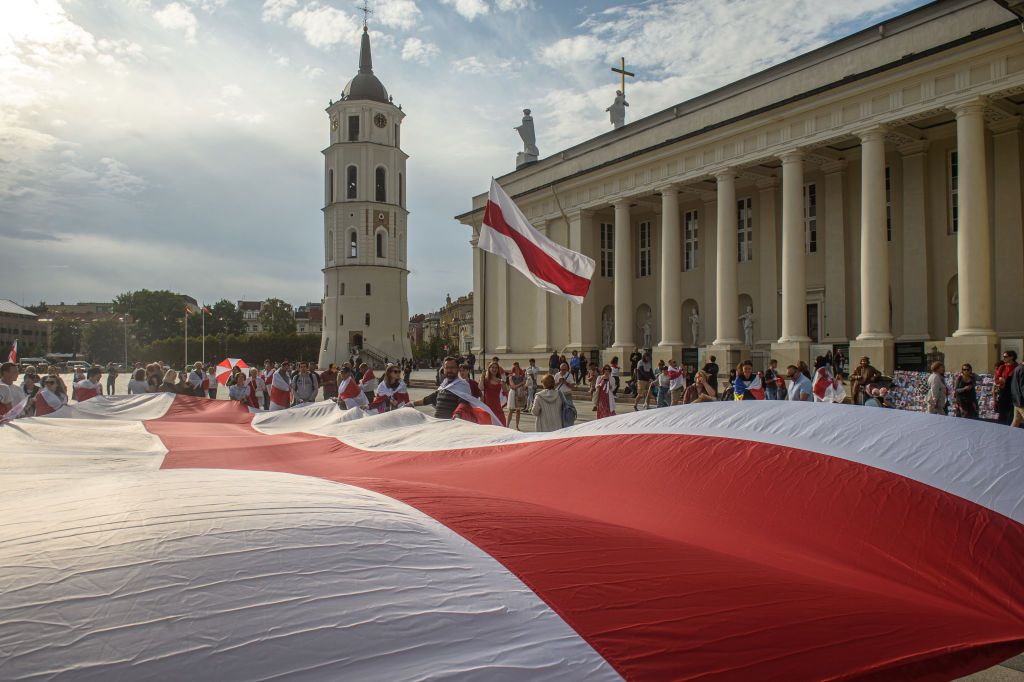Belarus Weekly: Belarusian, Russian athletes to participate in Olympics as neutrals

UK sanctions 17 Belarusians for participating in politically motivated trials of former presidential candidates and human rights advocates during Belarus' post-2020 election crackdown.
IOC clears Belarusian and Russian athletes to participate as neutrals in individual events at 2024 Paris Olympics, despite multiple international calls to uphold full ban imposed after the start of Russia's all-out invasion of Ukraine.
Belarusian KGB raids homes of former independent election observers across the country in what human rights advocates see as an intimidation campaign ahead of February 2024 parliamentary elections.
Belarusian media and human rights activists report 20 detentions in Belarus over train sabotage on Russia's Baikal-Amur railway line.
Belarus adds Nobel Peace Prize Laureate Ales Bialiatski to the list of "extremists."
UK sanctions 17 Belarusian judges for taking part in politically motivated persecution
The United Kingdom on Dec. 8 announced new sanctions against 17 Belarusian judges, prosecutors, and investigators who took part in politically motivated cases against journalists, human rights, and political activists following the 2020 presidential election.
The sanctioned individuals were involved in the trials of former presidential candidates Siarhei Tsikhanousky and Viktar Babaryka, human rights advocates from the Viasna Human Rights Center, Nobel Peace Prize laureate Ales Bialiatski, Ales Pushkin, an artist who died in custody, and Tut.by, the country’s largest independent media outlet.
Belarus ranks lowest in Europe in the 2023 World Justice Project’s Rule of Law Index. Prior to the war in Ukraine, Reporters Without Borders designated the country as the most dangerous in Europe for journalists.
Long a repressive country, Belarus cracked down even more strongly on dissent after the fraudulent presidential election of 2020, in which Belarusian dictator Alexander Lukashenko flagrantly rigged the vote to stay in power.
After hounding protestors from the streets, the Lukashenko regime started a retaliatory campaign against every individual who participated in the demonstrations, making arrests, closing over 1,200 non-profit organizations, and forcing activists into exile.
The Belarusian military has not officially joined Russia’s war against Ukraine. However, the country’s territory was used as a launch pad for Russia’s assault on Kyiv in February 2022, and as a launching site for drones and missiles targeted at Ukraine.
The UK previously sanctioned Belarus on Jun. 8 for Minsk’s role in Russia’s war against Ukraine, with the aim of stopping sanction dodging by the Kremlin regime through Belarus.
IOC clears Belarusian, Russian athletes to compete as neutrals at 2024 Paris Olympics
The International Olympic Committee or IOC has allowed Belarusian and Russian athletes to compete as neutrals outside team events in the 2024 Paris Olympic Games, with no Belarusian and Russian national flags, emblems, or anthems permitted, the IOC Executive Board announced on Dec. 8.
After initially banning Russian and Belarusian athletes from competing internationally in the wake of Russia’s war against Ukraine, the IOC relaxed the ban for individual athletes – provided they expressed no support for Russia’s war of aggression, and had no ties with their governments’ security agencies and military.
To become an Individual Neutral Athlete, Belarusians and Russians have to meet eligibility criteria passed down to International Federations and international sports event organizers by the IOC on March 28. According to the IOC, so far eight Russian and three Belarusian athletes have qualified for the Paris Olympics.
Ukrainian Foreign Minister Dmytro Kuleba condemned the decision to allow Belarusian and Russian athletes to compete, saying that the “Kremlin will use every Russian and Belarusian athlete as a weapon in its propaganda warfare,” thus weaponizing the Olympics.
Over 60 athletes from Ukraine who have already qualified for the 2024 Paris Olympics are now in limbo after Ukrainian Sports Minister Matviy Bidnyi announced that Ukraine has to “consider whether taking part in next year’s Paris Olympics is in the nation’s interests.”
“The decision to participate should be made on the basis of what it will bring to the country, what the reaction will be, and how much closer it will bring us to victory,” Bidnyi said on Dec. 10 on Ukrainian national television.
The Belarusian National Olympic Committee welcomed the clearance of the Belarusian athletes, but labeled the conditions imposed as “discriminatory.” The committee also said the IOC’s decision “does not satisfy the needs of the Belarusian sporting community in full.”
The Belarusian National Olympic Committee was suspended from the IOC and its top officials banned from the Olympic movement on Dec. 7, 2020, for being unable to protect Belarusian athletes from political persecutions.
Following the massive protests against the rigged Belarusian presidential elections in 2020 and the brutal retaliation of the authorities, over 1,300 Belarusian athletes sided with the protesters and signed a public letter demanding an end to the violence and the holding of transparent elections.
With Belarusian dictator Alexander Lukashenko himself presiding over Belarus’ National Olympic Committee at the time, the signees subsequently lost their positions on the national teams – some were arrested and forced to flee the country.
Ukrainian President Volodymyr Zelensky strongly campaigned for the ban to be kept in place. Thirty-four countries called on the IOC to sustain the restrictions after the initial announcement at the beginning of 2023 that they would be relaxed.
Viasna: KGB raids homes of independent election observers
The Belarusian KGB secret service has raided apartments and detained former independent election observers across the country ahead of the February 2024 parliamentary elections, Viasna Human Rights Center reported on Dec. 12.
KGB officers are alleged to have inspected the activists’ phones and forced them to record punitive “repentance videos,” promising to abstain from “aiding extremist activities” – a charge that can lead to up to seven years of imprisonment.
Human rights advocates believe the raids are part of an intimidation campaign ahead of the upcoming elections. “These are the consequences of the increased scale of repression on the eve of the elections,” said Pavel Sapelka, a human rights activist with Viasna. He said similar measures would affect all politically and socially active people in Belarus.
Independent observers were instrumental in revealing electoral fraud during the 2020 presidential elections, which were not observed by PACE and ODIHR, the human rights arm of the Organization for Security and Co-operation in Europe (OSCE).
Making up a fraction of the 43,000-strong corpus of national observers – most of whom were allied with government-controlled unions – the independent observers recorded over 6,700 violations nationwide.
Despite the obvious fraud, Belarusian dictator Alexander Lukashenko declared his sixth consecutive landslide victory, triggering mass protests.
In the subsequent crackdown, over 35,000 Belarusians were subjected to arbitrary detention and arrest, and around 1,500 are recognized to be political prisoners at the moment.
The crackdown on dissent is still going on three years after the contested elections: In late November, police conducted over 130 searches of the homes of exiled Belarusian politicians who planned to hold alternative elections for the proto-parliament in exile of the Belarusian democratic movement.
Belarus is set to hold parliamentary elections on Feb. 25, 2024 for the country’s puppet parliament and the newly established All-Belarus Peoples Assembly – an extra-parliamentary body with extensive powers that is to serve as a way for Lukashenko to retain power after his nominal presidency ends.
Media: 20 individuals detained in Belarus over alleged Ukraine-orchestrated train sabotage in Russia
The Viasna Human Rights Center and independent news outlet Pozirk reported independently on Dec. 10 that the Belarusian KGB security service had conducted raids in the northern Belarusian city of Polatsk in connection with alleged Ukraine-orchestrated attacks on a key railway line in Russia's far eastern republic of Buryatia on Nov. 29-30 and Dec. 1.
At least 20 people were detained, according to the Pozirk news outlet, a project run by the journalists of BelaPAN – formerly the country's largest independent news agency, which was shut down by the authorities in 2021.
Russian state news agency TASS reported an incident on Dec. 1 on one of the two railroads connecting European parts of Russia with the Russian Far East, China and North Korea.
Ukrainska Pravda reported that a freight train passing through the 15-kilometer-long Severomuysky Tunnel had exploded, forcing trains to reroute via a 35-meter-high overpass called the Devil's Bridge. The publication said a second explosion then occurred on the bridge, on Dec. 1.
Citing its sources in Ukrainian defense circles, CNN and several Ukrainian media outlets reported that the explosions were an operation by the Security Service of Ukraine. The agency has not commented officially on these reports.
Initially reported as a fire in one of the petroleum products tanker cars of the freight train, Russia's FSB later said the incident was sabotage.
On Dec. 7, Russia reported detaining Siarhei Yerameyeu, a 52-year-old Belarusian national, who allegedly confessed to committing sabotage.
The FSB claimed he was acting on the orders of another Belarusian living in Lithuania, whose work was coordinated by the Ukrainian special services.
Belarusian media identified Yerameyeu as a former employee of Belarusian oil refinery Naftan, who was fired on politically motivated grounds for participating in a workers' strike for demanding transparent elections after the fraudulent 2020 presidential elections in Belarus.
The Kyiv Independent can't verify the reports independently.
Russia does not provide transparent access to its legal system, and international human rights organizations have long detailed rampant abuse in its prisons, as well as the use of torture to coerce confessions.
Belarus brands Nobel Peace Prize Laureate Ales Bialiatski as an extremist
The Belarusian Interior Ministry on Dec. 8 added Ales Bialiatski – a Nobel Peace Prize laureate and founder of the Viasna Human Rights Center – to its list of extremists.
Bialiatski is currently serving a 10-year sentence in Belarus after being subjected to a politically motivated trial along with three of his colleagues – Valiantsin Stefanovich, Uladzimir Labkovich, and Zmitser Salauyou.
Stefanovich, the deputy head of Viasna, has also been placed on the “extremist” list. Following inclusion on the list, the Belarusian KGB receives the right to track any of the individual’s financial transactions, including ones sent to support prisoners.
Earlier, on Nov. 6, the prison colony administration placed Bialiatski in solitary confinement, which is commonly seen as a way to put pressure on political prisoners.
Viasna, which reports on politically motivated repression, was labeled an “extremist formation” and effectively outlawed in Belarus on Aug. 23.
Under the current regime’s legislation, providing any information to an “extremist formation” constitutes participation in it and is punishable by up to seven years in prison. The United States and the United Nations have condemned the decision.














